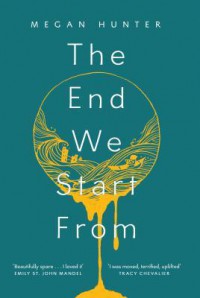

I bought this novella as an audiobook. It has an intriguing end-of-days setting. It's poetic in its intent and execution. It's been highly praised and heavily hyped. It's two hours and two minutes long and yet it felt like a test of my endurance.
I found the lyricism self-conscious and over-wrought. There are many fine sentences but having them layered endlessly on one another becomes a burden of blessings. The whole here is much less than the parts.
The story is told by a woman who metaphorically refuses to make eye contact with either the reader or herself. She normalises commenting on the world in a way so oblique that it's like looking through small slits in cloth and trying to see what's going on.
For reasons I still don't understand, she refers to everyone only by the first letter of their first name, as if letters were rationed.
The rhythm is punishingly slow. The narrative drifts through dense prose that is vivid but directionless. There is no "why?", no "what next?" just a relentlessly drab "right now" that is soaked in dispassionate disassociative observation.
There is some wonderful stuff on the physical and emotional links between newborn and mother but the context makes it feel less like a maternal bond and more like an escape from a world that is falling apart.
This is probably a wonderful book in the same way that Philip Glass probably writes wonderful operas, it's just that neither of them is for me.










